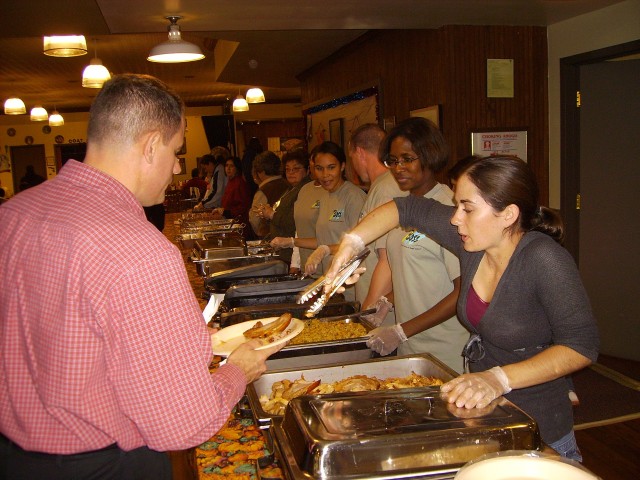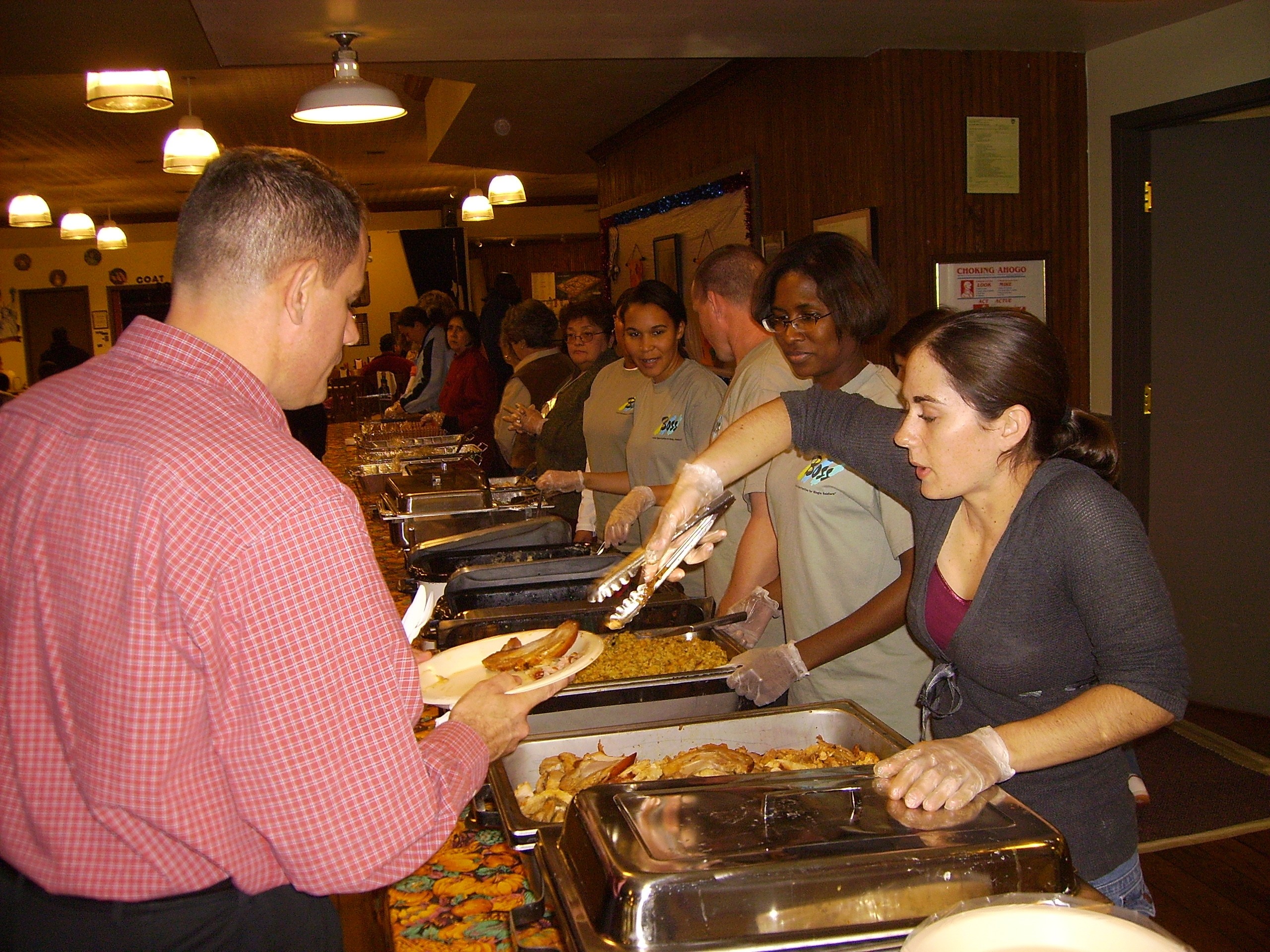ALEXANDRIA, Va. (Army News Service, Jan. 23, 2008) - "I remember my first experience representing the Better Opportunities for Single Soldiers program at the Army Family Action Plan conference," said Marlon Martin, now manager of the Army-wide BOSS program.
"I saw that I was part of a bigger picture, that my issues were not my own," said Marlow who now serves at the Family and Morale, Welfare and Recreation Command in Alexandria, Va.
"You really don't get a picture of that as an individual at the installation until you witness the AFAP process at the Department of the Army level. Then you really understand how big our Army is and how little you are. However, you have been given a real big megaphone all of a sudden. When you return to your own installation, how do you use that to enhance the life of your fellow Soldiers'"
Launched in 1989, the BOSS program is a product of AFAP. BOSS supports single Soldiers, by improving their quality of life and ensuring that the voice of the single Soldier is heard in all processes.
BOSS addresses issues that can directly or indirectly influence or enhance morale, living environment, personal growth, and development of Soldiers - quality-of-life issues concerning all Soldiers, not just single Soldiers.
Single Soldiers comprise more than 45 percent of the Army population and BOSS now has 82 programs throughout the continental United States, Europe, Korea and the Pacific region.
"It is 19 years, and we have come a long way," said Sgt. 1st Class Toprane Coatney, the Boss representative at the Family and Morale, Welfare and Recreation Command. "BOSS has expanded over the years to include the core components, the pillars that we have today: community service, recreation and leisure and quality of life."
The BOSS program has a representative sitting on almost all agency committees on an installation, he said. There is representation on the AFAP steering committee, so those issues that are brought up through the AFAP process are seen by a BOSS president or vice president on the steering committee, ensuring that the single Soldiers' interest is kept in the forefront.
"One of the greatest opportunities that single Soldiers have is at the General Officers Steering Committee," Coatney said. "Last year, I heard the loudest Hooah from 70 Soldiers in the room when the sergeant major of the Army addressed the senior leaders about the merits of the BOSS program and how important they are and that senior leaders should look at it more seriously and get more involved."
"One of the biggest things I got out of the AFAP conference is our ability to speak directly to senior leaders about issues that affect us," Coatney said. "It's about Soldiers taking care of Soldiers and their families. It's about Soldiers saying here, here is my little voice representing however many Soldiers I am representing and the Army gave me a platform from which to say something and I am going to say it."
During Coatney's first time participating in AFAP process, he was selected to brief Gen. Campbell, the director of the Army Staff, who was the United States Army Pacific commander at the time.
"I was told that this general was very personable and would hang onto every word I had to say and that he would to listen to me, and I said, 'Yeah that's what they all say,'" Coatney said. "I was stunned, for it seemed like he hung onto every word that came out of my mouth and it wasn't because I was a Soldier standing up there talking, it was because I was a Soldier standing there presenting issues that affected Soldiers everywhere.
"There was not one leader who blew us off, there was not one leader who you felt didn't listen. They all listened and they understood and they took what the delegates said to heart. They take them back and they work them; they work them tooth and nail. We know that for a fact because BOSS is a product of one of the issues that came out of AFAP."
The BOSS program's mission includes increasing retention and sustaining combat readiness.
"We are now looking at how the BOSS program fits to see how it fits with mission support," Coatney said. "We talk about pre-deployment, deployment and re-deployment, and where we fit into that. We know they're busy; we know they're focused. We know that the most important thing is for them to train Soldiers to go and fight the war on terror."
"We are fighting the fights that a lot of Soldiers don't see," said Coatney. "We are standing our ground for better barracks; we are ensuring that quarters are done on time. But that is not all we do. We have to get away from the thinking that BOSS is all about the barracks.
"When you look at the AFAP process, it is the only program in any branch of services that gives a private, who just came in the military, a voice to talk to the chief of staff of the Army. There is no other program in the armed forces that allows you to say, 'I don't like the hours of AAFES, so I am going to submit a proposal to get this changed' and someone is going to actually listen to you and take it seriously."
"We have come a long way, and in 2008 we are going even further, and this is due to the AFAP process and the Soldiers on the ground demanding more from us and BOSS demanding more from ourselves. This is due the Army leadership saying 'Hey look, we have not forgotten about you. You are just as important to us as anybody else.'"
(Margaret McKenzie writes for FMWRC Public Affairs.)


Social Sharing